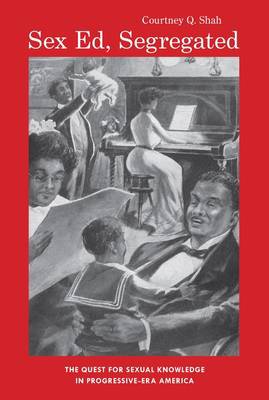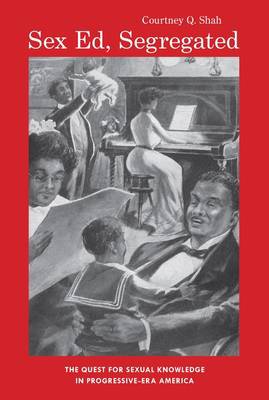
- Retrait gratuit dans votre magasin Club
- 7.000.000 titres dans notre catalogue
- Payer en toute sécurité
- Toujours un magasin près de chez vous
- Retrait gratuit dans votre magasin Club
- 7.000.0000 titres dans notre catalogue
- Payer en toute sécurité
- Toujours un magasin près de chez vous
177,45 €
+ 354 points
Description
Demonstrates that the intersection between race, gender, and class formed the backbone of Progressive-Era debates over sex education, the policing of sexuality, and the prevention of venereal disease. Against the backdrop of the Progressive Era, World War I, and the 1920s, sex education burgeoned in the United States through institutions like the YMCA, the popular press, girls' schools, and the US military. As access to sexualknowledge increased, reformers debated what the messages of a sex-education curriculum should be and, perhaps more important, who would receive those messages. Courtney Shah's study chronicles this debate, showing that sex education then, just as in our own era, had as much to do with politics and morals as it did with biology and medicine. Examining how different population groups in the United States were given contrasting types of sex education, Shah demonstrates that such education was used as a tool to reinforce or challenge racial segregation, women's rights, religious diversity, and class identity. Courtney Shah is an instructor of history at Lower Columbia College in Longview, Washington.
Spécifications
Parties prenantes
- Auteur(s) :
- Editeur:
Contenu
- Nombre de pages :
- 228
- Langue:
- Anglais
- Collection :
- Tome:
- n° 6
Caractéristiques
- EAN:
- 9781580465359
- Date de parution :
- 15-08-15
- Format:
- Livre relié
- Format numérique:
- Genaaid
- Dimensions :
- 150 mm x 231 mm
- Poids :
- 544 g

Les avis
Nous publions uniquement les avis qui respectent les conditions requises. Consultez nos conditions pour les avis.






